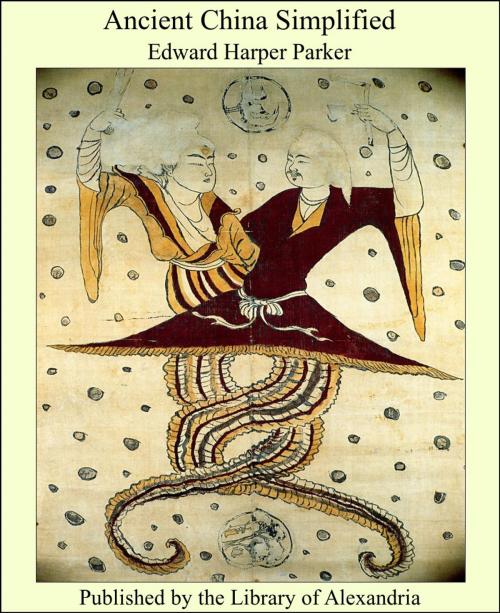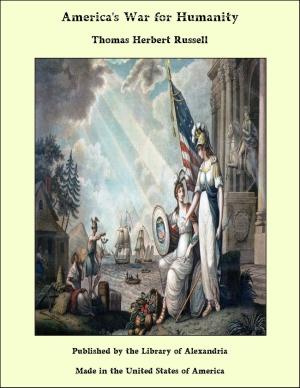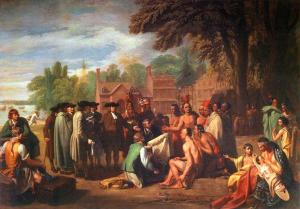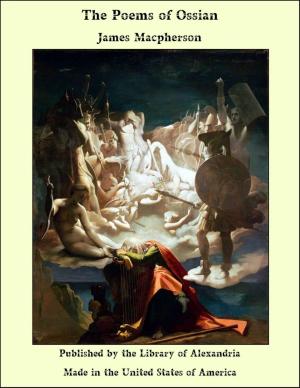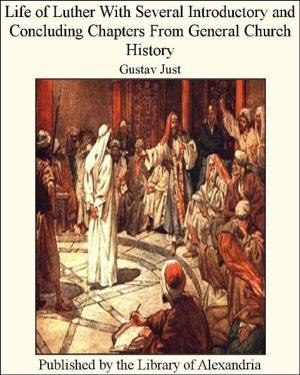Ancient China Simplified
Nonfiction, Religion & Spirituality, New Age, History, Fiction & Literature| Author: | Edward Harper Parker | ISBN: | 9781465538048 |
| Publisher: | Library of Alexandria | Publication: | March 8, 2015 |
| Imprint: | Language: | English |
| Author: | Edward Harper Parker |
| ISBN: | 9781465538048 |
| Publisher: | Library of Alexandria |
| Publication: | March 8, 2015 |
| Imprint: | |
| Language: | English |
Boswell once remarked to Dr. Johnson that "the history of England is so strange that, if it were not well vouched as it is, it would be hardly credible." To which Johnson replied in his usual style: "Sir, if it were told as shortly, and with as little preparation for introducing the different events, as the history of the Jewish kings, it would be equally liable to objections of improbability." Dr. Johnson went on to illustrate what he meant, by specific allusion to the concessions to Parliament made by Charles I. "If," he said, "these had been related nakedly, without any detail of the circumstances which generally led to them, they would not have been believed." This is exactly the position of ancient Chinese history, which may be roughly said to coincide in time with the history of the Jewish kings. The Chinese Annals are mere diaries of events, isolated facts being tumbled together in order of date, without any regard for proportion. Epoch-making invasions, defeats, and cessions of territory are laconically noted down on a level with the prince's indiscretion in weeping for a concubine as he would weep for a wife; or the Emperor's bounty in sending a dish of sacrificial meat to a vassal power by express messenger. In one way there is a distinct advantage in this method, for, the historian being seldom tempted to obtrude his own opinion or comments, we are left a clear course for the formation of our own judgments upon the facts given. On the Other hand, it is unfortunate that what may be called the philosophy of history has never been seized by the Chinese mind: the annalists do not trouble themselves with the rights and aspirations of the masses; the results to general policy that naturally follow upon increase of population, perfecting of arms and munitions of war, admixture of foreign blood with the body politic, and such like matters. The heads of events being noted, it seems to be left to the reader to fill in the details from his imagination, and from his knowledge of contemporary affairs. For instance, suppose the reign of Queen Victoria were to begin after this fashion:—"1837, 5th moon, Kalends, Victoria succeeded: 9th moon, Ides, Napoleon paid a visit: 28th day, London flooded; 10th moon, 29th day, eclipse of the sun"; and so on. At the time, and for many years—possibly centuries—afterwards, there would be accurate general traditional, or even written, information as to who Victoria was; why Napoleon paid a visit; in what particular way the flood affected England generally; from what parts the eclipse was best visible, etc. These details would fade in distinctness with each successive generation; commentators would come to the rescue; then commentators upon commentators; and discussions as to which man was the most trustworthy of them all. Under these circumstances it is difficult enough for the Chinese themselves to construct a series of historical lessons, adequate to guide them in the conduct of modern affairs, out of so heterogeneous a mass of material. This difficulty is, in the case of Westerners, more than doubled by the strange, and to us inharmonious, sounds of Chinese proper names: moreover, as they are monosyllabical, and many of them exactly similar when expressed in our letters, it is almost impossible to remember them, and to distinguish one from the Other. Thus most persons who make an honest endeavour by means of translations to master the leading events in ancient Chinese history soon throw down in despair; while even specialists, who may wish to shorten their labours by availing themselves of Others' work, can only get a firm grip of translations by comparing them with the originals: it is thus really impossible to acquire anything at all approaching an accurate understanding of Chinese antiquity without possessing in some degree the controlling power of a knowledge of the pictographs
Boswell once remarked to Dr. Johnson that "the history of England is so strange that, if it were not well vouched as it is, it would be hardly credible." To which Johnson replied in his usual style: "Sir, if it were told as shortly, and with as little preparation for introducing the different events, as the history of the Jewish kings, it would be equally liable to objections of improbability." Dr. Johnson went on to illustrate what he meant, by specific allusion to the concessions to Parliament made by Charles I. "If," he said, "these had been related nakedly, without any detail of the circumstances which generally led to them, they would not have been believed." This is exactly the position of ancient Chinese history, which may be roughly said to coincide in time with the history of the Jewish kings. The Chinese Annals are mere diaries of events, isolated facts being tumbled together in order of date, without any regard for proportion. Epoch-making invasions, defeats, and cessions of territory are laconically noted down on a level with the prince's indiscretion in weeping for a concubine as he would weep for a wife; or the Emperor's bounty in sending a dish of sacrificial meat to a vassal power by express messenger. In one way there is a distinct advantage in this method, for, the historian being seldom tempted to obtrude his own opinion or comments, we are left a clear course for the formation of our own judgments upon the facts given. On the Other hand, it is unfortunate that what may be called the philosophy of history has never been seized by the Chinese mind: the annalists do not trouble themselves with the rights and aspirations of the masses; the results to general policy that naturally follow upon increase of population, perfecting of arms and munitions of war, admixture of foreign blood with the body politic, and such like matters. The heads of events being noted, it seems to be left to the reader to fill in the details from his imagination, and from his knowledge of contemporary affairs. For instance, suppose the reign of Queen Victoria were to begin after this fashion:—"1837, 5th moon, Kalends, Victoria succeeded: 9th moon, Ides, Napoleon paid a visit: 28th day, London flooded; 10th moon, 29th day, eclipse of the sun"; and so on. At the time, and for many years—possibly centuries—afterwards, there would be accurate general traditional, or even written, information as to who Victoria was; why Napoleon paid a visit; in what particular way the flood affected England generally; from what parts the eclipse was best visible, etc. These details would fade in distinctness with each successive generation; commentators would come to the rescue; then commentators upon commentators; and discussions as to which man was the most trustworthy of them all. Under these circumstances it is difficult enough for the Chinese themselves to construct a series of historical lessons, adequate to guide them in the conduct of modern affairs, out of so heterogeneous a mass of material. This difficulty is, in the case of Westerners, more than doubled by the strange, and to us inharmonious, sounds of Chinese proper names: moreover, as they are monosyllabical, and many of them exactly similar when expressed in our letters, it is almost impossible to remember them, and to distinguish one from the Other. Thus most persons who make an honest endeavour by means of translations to master the leading events in ancient Chinese history soon throw down in despair; while even specialists, who may wish to shorten their labours by availing themselves of Others' work, can only get a firm grip of translations by comparing them with the originals: it is thus really impossible to acquire anything at all approaching an accurate understanding of Chinese antiquity without possessing in some degree the controlling power of a knowledge of the pictographs
